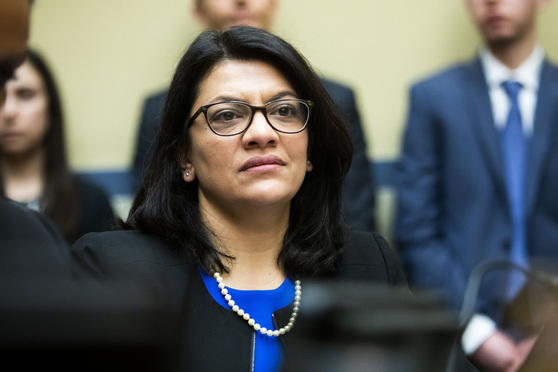 Rep. Rashida Tlaib, D-Mich. (Photo: Diego Radzinschi/ALM)
Rep. Rashida Tlaib, D-Mich. (Photo: Diego Radzinschi/ALM)
Opportunity zone funds continue to come under political pressure despite the proliferation of new funds forming around the country seeking investors.
Last Friday Reps. Rashida Tlaib, D-Mich., a first-termer who sits on the Financial Services and Oversight and Reform committees, and Pramila Jayapal, D-Wash., introduced legislation that would remove opportunity zones from the U.S. tax code.
Recommended For You
The bill follows several others that were recently introduced in Congress as well as congressional calls for investigations into opportunity zones following news reports about political favoritism involved in the designation of zones.
ProPublica found that the White House and Maryland governor's office designated opportunity zones that included tracts owned by wealthy businessmen after initially denying those selections. In the case of the White House, it was a property in Detroit — Tlaib's district includes parts of the city — owned by Quicken Loans co-founder and Cleveland Cavaliers owner Dan Gilbert. In the Maryland case, the tract was owned by Under Armour founder Kevin Plank's private development company.
In addition, The New York Times found the Treasury Department did the same about-face with a tract in Storey County, Nevada, that included a 700-acre site owned by former former junk bond king and convicted felon Michael Milken as an opportunity zone.
All three designations were initially denied because the tracts failed to meet poverty level requirements.
"The American people have been scammed by Opportunity Zones," said Tlaib in a statement. "Opportunity Zones were supposed to help uplift low-income communities and those living in poverty, but instead we are seeing them benefit billionaires and their luxury projects. … We must repeal them to stop yet another form of corporate greed from hurting our communities and tarnishing our democracy."
Tlaib had previously written the chairmen of the House Committee on Ways and Means and two congressional subcommittees requesting investigative hearings into whether political campaign contributions influenced the designation of opportunity zones in her district and across the country.
She is not alone in her criticism of the program, which was designed to provide tax breaks to investors in exchange for investments in economically deprived communities, but Tlaib is the only congressional member to call for its repeal. The program was created by the 2017 tax cut legislation, allowing states to designate up to 25% of low-income census tracts as opportunity zones followed by Treasury Department certification of tracts. Eventually more than 8,700 were chosen, but whether they will all host developments is uncertain.
Anthony Scaramucci's SkyBridge Capital, for example, initially sought to raise $3 billion in opportunity zone funds to invest nationwide, but raised only about $30 million and has said reduced its target to $300 million, according to news reports quoting Scaramucci.
Sen. Cory Booker; D-N.J., and Reps. Emanuel Cleaver, D-Mo., and Ron Kind, D-Wis., have called for a complete review of all certified opportunity zones by the Treasury Department's acting inspector general.
Booker, along with Sens. Tim Scott, R-S.C.; Maggie Hassan, D-N.H.; and Todd Young, R-Ind., has introduced a bill to strengthen reporting requirements for opportunity zones, which were included in the original Investing in Opportunity Act but removed from the final legislation. A similar bill has been introduced in the House by Reps. Kind; Terri Sewell, D-Ala.; and Mike Kelly, R-Pa.
Sen. Ron Wyden, D-Ore., introduced a bill that would make it more difficult for developments already underway before the 2017 legislation took effect to qualify for opportunity zone tax breaks, would disqualify about 200 zones that are contiguous with opportunity zones but not low-income, and require the Treasury to compile and publicly release data on opportunity zones and funds, including metrics on job creation and poverty reduction.
Wyden, along with House Ways and Means Committee Chairman Richard Neal, D-Mass., also launched an investigation into the Treasury Department's designation of Storey County, Nevada, as an opportunity zone.
The IRS, which has issued several rounds of regulations for opportunity zones and opportunity zone funds, recently proposed a broad-based disclosure form for opportunity zone funds that doesn't even require the exact addresses of its investments. Tlaib appears unmoved by existing and proposed regulations for opportunity zones and the funds that invest in them.
"Our communities deserve resources and programs with proven track records to thrive – the current Opportunity Zone law fails to drive real benefits to low-income communities, instead often rewarding President Trump's donors," Tlaib said.
© 2025 ALM Global, LLC, All Rights Reserved. Request academic re-use from www.copyright.com. All other uses, submit a request to [email protected]. For more information visit Asset & Logo Licensing.






